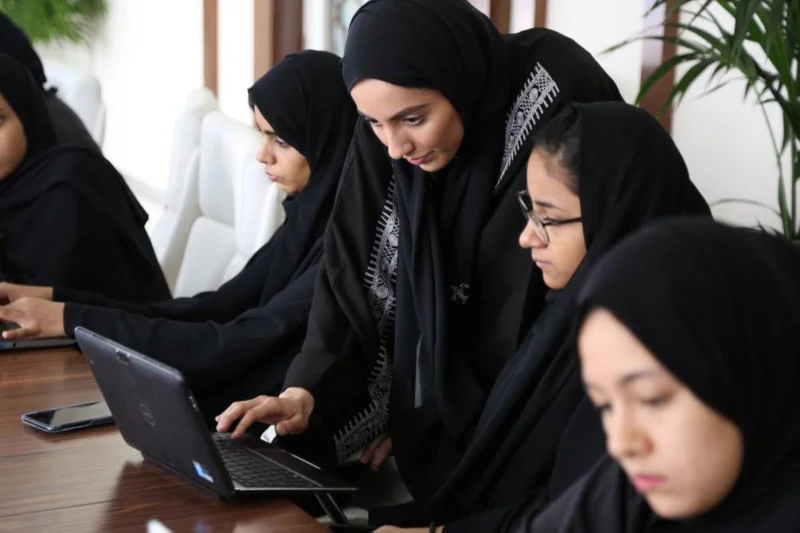TELL THE TALIBAN TO DO THE SAME





Emirati women entrepreneurs have busted many stereotypes, firmly establishing their businesses as powerful engines contributing to the country’s economy. File/WAM
The Union Association for Human Rights (UAHR) has affirmed that the UAE has achieved significant milestones in human rights, aligning with the Sustainable Development Goals (SDGs). These achievements are particularly notable in health, education, social protection, cultural and religious rights, combating discrimination, and fostering justice.
On the occasion of Human Rights Day, observed annually on 10th December, UAHR highlighted the UAE’s steady progress in enacting laws and policies to uphold human rights. These include measures supporting women’s empowerment, children’s rights, the elderly, and labour rights, all reflecting the rule of law.
The Association highlighted the importance of this year’s UN theme, “Our Rights, Our Future, Right Now,” which underscores building a better future for societies committed to the fundamental principles of human rights and its role in achieving the SDGs promptly.
In the past five years, the UAE has enacted around 55 laws to enhance human rights protection. These include legislation on protection from domestic violence, combating discrimination and extremism, safeguarding witnesses, juvenile delinquents, children of unknown parentage, and combating human trafficking.
Other laws include regulating places of worship for non-Muslims, media regulations, labour relations, senior citizens rights, and personal data protection.
Additionally, nearly 40 national strategies and policies have been launched, such as the National Policy for Empowerment of Emirati Women 2023-2031, the adoption of the Women, Peace and Security plan, the UAE Gender Balance Council Strategy, the National Food Security Strategy, and the UAE Strategy for Artificial Intelligence.
On the international stage, the UAE has earned global recognition for its efforts. It ranked seventh globally, first regionally in the 2024 Gender Inequality Index of the UN Development Programme, and first globally in the Lack of Labour Disputes Index, as per the Institute for Management Development World Competitiveness Yearbook 2024.
WAM
No comments:
Post a Comment